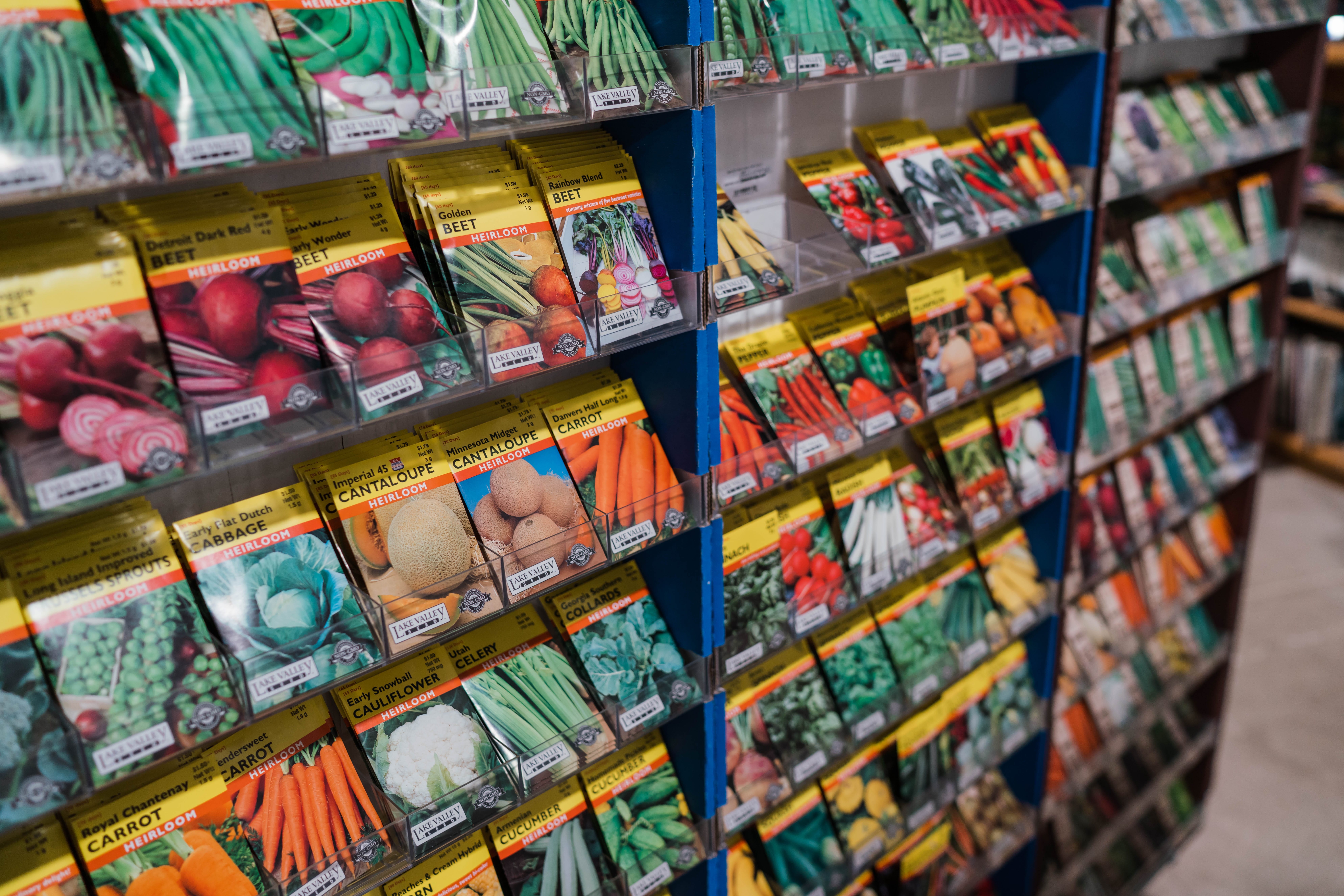Hours of Operation
Yes, we are open!
Sunday – Friday 10 -5
Saturday 9 – 5
In recent years, urban gardening has experienced a resurgence. Many urban dwellers are once again discovering the many benefits urban gardening has to offer. Not only does urban gardening create a positive impact on the economy, the environment, and food security, but it has also been found to increase the emotional and social well-being of urban gardeners, while also reducing overall stress levels. Are you ready to start your own urban garden? Check out the ultimate planting guide for urban gardening throughout the Denver area below!

Understanding the Denver Planting Season
There is much to learn about planting seasons and how they differ from region to region. However, you might not have the time or desire to go in-depth on this subject. To break it down, the most important thing you need to know is that the Denver area growing season is 153 days. A region's growing season is the time between the last spring and first fall frost. In the Denver area, this time spans between about May 4 and October 3. We recommend waiting until the second weekend in May before planting, just to play it safe. You can check out more about planting seasons and regional zones through USDA resources.
Location is Always Key
The first step in urban gardening is mapping out your garden space. Remember, location is always crucial when it comes to successful gardening. Two of the most important factors to consider when mapping out your garden space are how much sunlight the area receives throughout the day and the soil health of the area. Before planting directly into the ground, you should make soil testing of the area a top priority. If you plan to use raised beds or planters, then optimizing soil health will be a little easier than planting directly into the ground. Ultimately, the sunlight an area receives is probably the most essential factor when mapping out your garden location. Sun exposure will always be a key factor in choosing a garden location. Remember to take note of when the area receives full sun exposure, as full exposure at midday is much hotter than early morning or evening sun rays. An area that receives southern or southeastern exposure, allowing for at least six hours of exposure a day, is the ideal location for your garden.
What Plants Do You Want?
After determining the best location for your garden, it's time to decide what plants you want to grow. There are a lot of directions you can take your urban garden experience. From veggies to herbs, you have a lot of choices over which plants you want to bring into your urban garden.
Popular Vegetables to Plant in the Denver Area
- Onions
- Potatoes
- Spinach
- Lettuce
- Kale
- Chard
- Arugula
- Mustard
- Radishes
- Beets
- Turnips
- Peppers
- Tomatoes
- Eggplant
- Cauliflower
- Broccoli
- Cucumber
- Sugar Snap Peas
- Rhubarb
- Cabbage
- Artichoke
Popular Herbs to Plant in the Denver Area
- Basil
- Parsley
- Coriander
- Tarragon
- Dill
- Spearmint
- Parsley
- Thyme
- Mint
How Do I Bring My Urban Garden to Life?
After choosing what plants you want to grow in your urban garden, it's time to bring your garden to life. The first order of business is to determine if you want to source seeds or buy starters.
Seeds Vs. Starters
With direct seeding, you plant a seed directly into the soil and watch it grow. With starter plants, you transplant a seedling that has already grown for several weeks indoors into your garden. Growing your garden from seeds not only takes a bit longer but also requires a fair bit more diligence in the gardening process. In general, most cold-season crops should be seeded, and most warm-season plants should be transplanted.
Seeding
With seeding, the general rule of thumb is to plant seeds at a depth equal to three times the seed's thickness. Make sure to cover the seeds you plant with soil and only to plant one seed per hole.
Transplanting
When choosing the transplanting route, be sure to select starter plants that are dark green and healthy-looking. It's best to transplant in the evening when the weather isn't too hot, but the soil is still warm. Immediately after transplanting the starter plants into your garden, you should provide them with water.
How Should I Monitor My Soil Health?
For a successful urban garden experience, it's important to continue to monitor your garden's soil health after planting. The best vegetable garden soil is high in organic material, as well as loose or not compacted. In the Denver area, soil tends to be highly compacted. Therefore, it is important to till the garden area. It would also be beneficial for the soil to mix in some compost and feed your garden with fertilizer about every two weeks. Check out this website to learn more about soil health.
How Do I Set Up a Watering System?
Setting up a stable watering system is another important piece of the puzzle when it comes to urban gardening. The Denver area has an arid and sunny climate. The soils in the area are often dry, leading to thirsty plants. When temperatures are cooler, you can generally water every other day. However, when temperatures rise, daily watering will be needed. Deeply soaking the soil also helps the roots to grow deeper into the soil. Utilizing mulch also helps to keep soil moisture, ensuring happy and healthy plants.
Have More Questions?
Starting your own urban garden can be a bit intimidating. But don't worry, you don't have to go into it alone. At Country Fair Garden Center we assist every customer with all of their gardening questions and needs. We have been trusted garden experts in the greater Denver area for decades. Our family gardening business started back in 1948, and has only grown since then. Don't be afraid to call or stop in with any gardening questions you may have. We take pride in providing useful and proven gardening tips and products to all of our customers. Contact us today for all of your plant and gardening tool needs!
